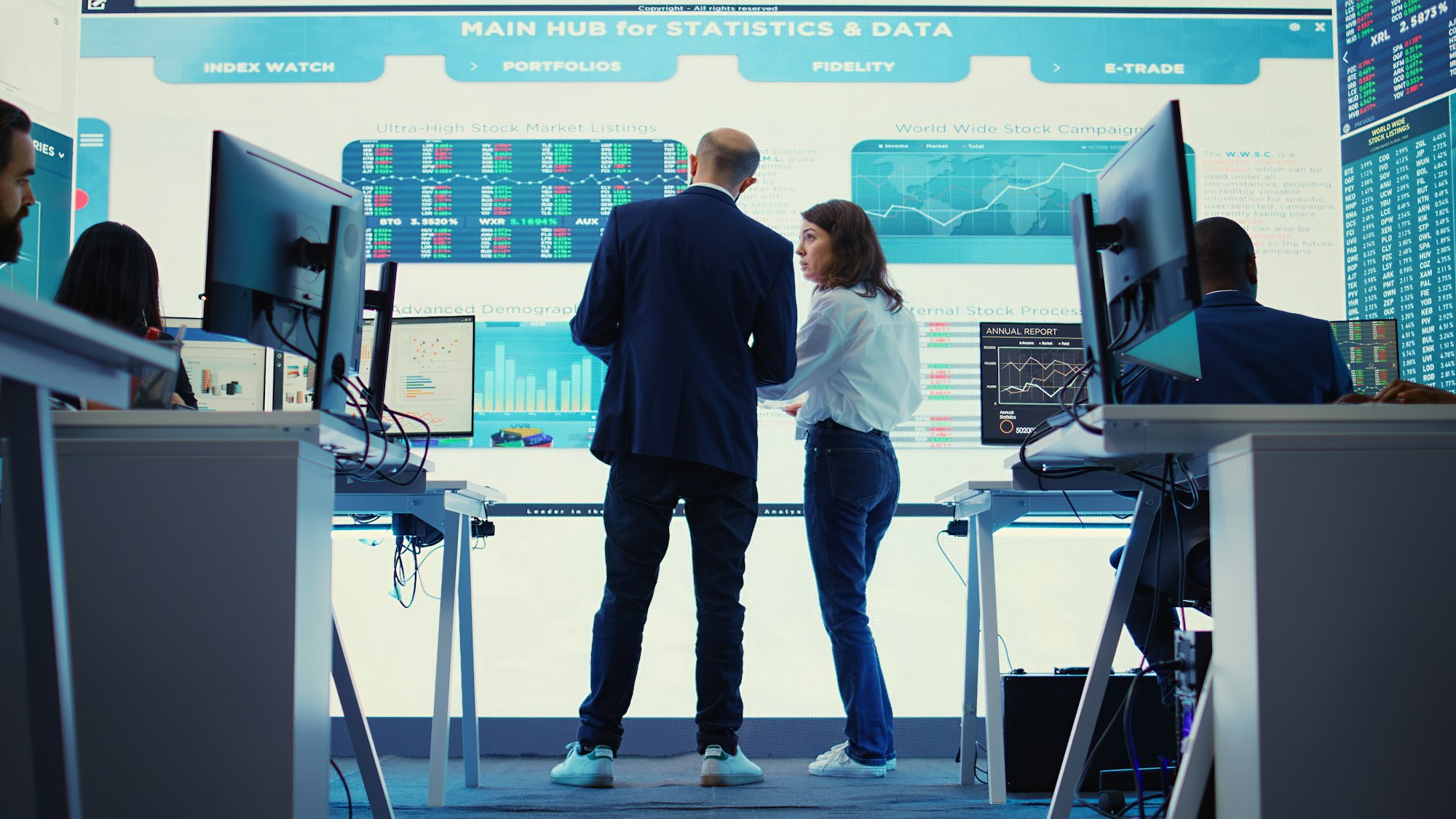Artificial Intelligence (AI) is revolutionizing the way businesses operate, making them faster, smarter, and more efficient. Recently, a senior executive from Google DeepMind—a leader in AI research—discussed how this cutting-edge technology is transforming various industries, from manufacturing to healthcare. AI is no longer just a buzzword; it’s a powerful tool that is reshaping the business world.
In this blog post, we’ll explore the full potential of AI in driving business efficiency, building on the key insights from the Google DeepMind interview. We’ll also answer some commonly asked questions about how AI is being used in the workplace.

AI: More Than Just Automation
When we think of AI, automation usually comes to mind—the idea of machines taking over repetitive tasks. While this is a big part of AI’s impact, it’s not the whole story. AI is doing much more to boost efficiency across the board:
- Smarter Decision-Making: AI systems can process and analyze huge amounts of data instantly. This enables businesses to make data-driven decisions quickly, whether it’s predicting market trends or identifying operational risks. The result? Faster, more informed decision-making that keeps companies competitive.
- Personalization at Scale: In sectors like e-commerce, AI can analyze customer preferences and buying habits, allowing businesses to offer personalized experiences to millions of customers. This leads to higher customer satisfaction and loyalty, key drivers of long-term success.
- Minimizing Downtime in Manufacturing: AI can predict when machinery or equipment is likely to break down, allowing companies to fix problems before they happen. This saves time, money, and keeps production running smoothly.
- Boosting Employee Productivity: AI handles routine tasks, giving employees more time to focus on creative and strategic work. For example, in customer service, AI chatbots can answer basic queries, freeing human agents to tackle more complex issues.
Real-World Examples of AI in Action
AI is already driving efficiency in some of the world’s biggest industries. Here are a few real-world examples:
- Supply Chain Management: Companies like Amazon use AI to streamline their logistics and inventory systems. AI predicts product demand, optimizes delivery routes, and ensures that warehouses are always stocked—leading to faster deliveries and happier customers.
- Finance: In the financial sector, AI is used to detect fraud, automate customer support, and even provide personalized investment advice. Banks and fintech companies are using AI to analyze market trends and optimize their trading strategies.
- Healthcare: AI is making a big impact in healthcare, from analyzing medical images to predicting diseases. Google DeepMind’s AI has led to breakthroughs in early disease detection and patient monitoring, reducing inefficiencies in hospitals and improving patient outcomes.
- Retail: AI helps retailers predict product demand, manage inventory, and create personalized marketing campaigns. It also analyzes customer reviews and social media feedback, helping businesses fine-tune their strategies to better serve their customers.
Challenges and Ethical Concerns
While AI offers incredible benefits, it also comes with challenges that businesses need to consider:
- Job Displacement: As AI automates more tasks, some jobs may become obsolete. However, this shift also opens up opportunities for new roles, particularly in areas that require creativity, problem-solving, and strategic thinking. Businesses should focus on reskilling and upskilling employees to prepare them for these new opportunities.
- Data Privacy: AI relies on data to function, and businesses must ensure they handle that data responsibly. Protecting customer privacy and adhering to regulations is essential for maintaining trust.
- Transparency in AI Decision-Making: As AI systems become more advanced, it can be difficult to understand how they make certain decisions. To address this, companies should invest in Explainable AI (XAI), which provides clearer insights into how AI operates and makes decisions.
The Future of AI-Driven Efficiency
AI is still evolving, and its potential to improve business efficiency is only growing. The future of work will likely involve collaboration between humans and AI, with AI handling repetitive tasks and humans focusing on creative problem-solving.
AI’s role in innovation is also expanding. New AI models are being designed to help businesses think outside the box—whether by suggesting new product designs or improving research and development processes.
Additionally, integrating AI with other emerging technologies like quantum computing could unlock new possibilities, particularly in industries like pharmaceuticals, where AI can dramatically speed up drug discovery.
Conclusion: The AI Advantage
AI has the power to revolutionize business efficiency, but its potential will only be realized if it’s implemented thoughtfully. Companies that use AI as a tool to enhance human capabilities, rather than replace them, will lead the way in the future.
As AI continues to advance, it’s clear that businesses must embrace this technology to stay competitive. Those who invest in AI and prepare their workforce for an AI-enhanced future will be the ones to thrive in the evolving business landscape.

Commonly Asked Questions:
1. Will AI take over all jobs?
No, while AI will automate some tasks, it will also create new roles that require human creativity, problem-solving, and emotional intelligence. Companies need to focus on retraining their employees for these new opportunities.
2. How can businesses ensure AI makes fair decisions?
Explainable AI (XAI) is one way to ensure fairness. XAI provides insights into how AI systems make decisions, helping businesses maintain transparency and trust with both employees and customers.
3. Which industries are seeing the most benefits from AI right now?
Industries like healthcare, finance, manufacturing, and retail are seeing the most immediate benefits from AI, but its potential is being realized across nearly every sector.
Sources Fortune


